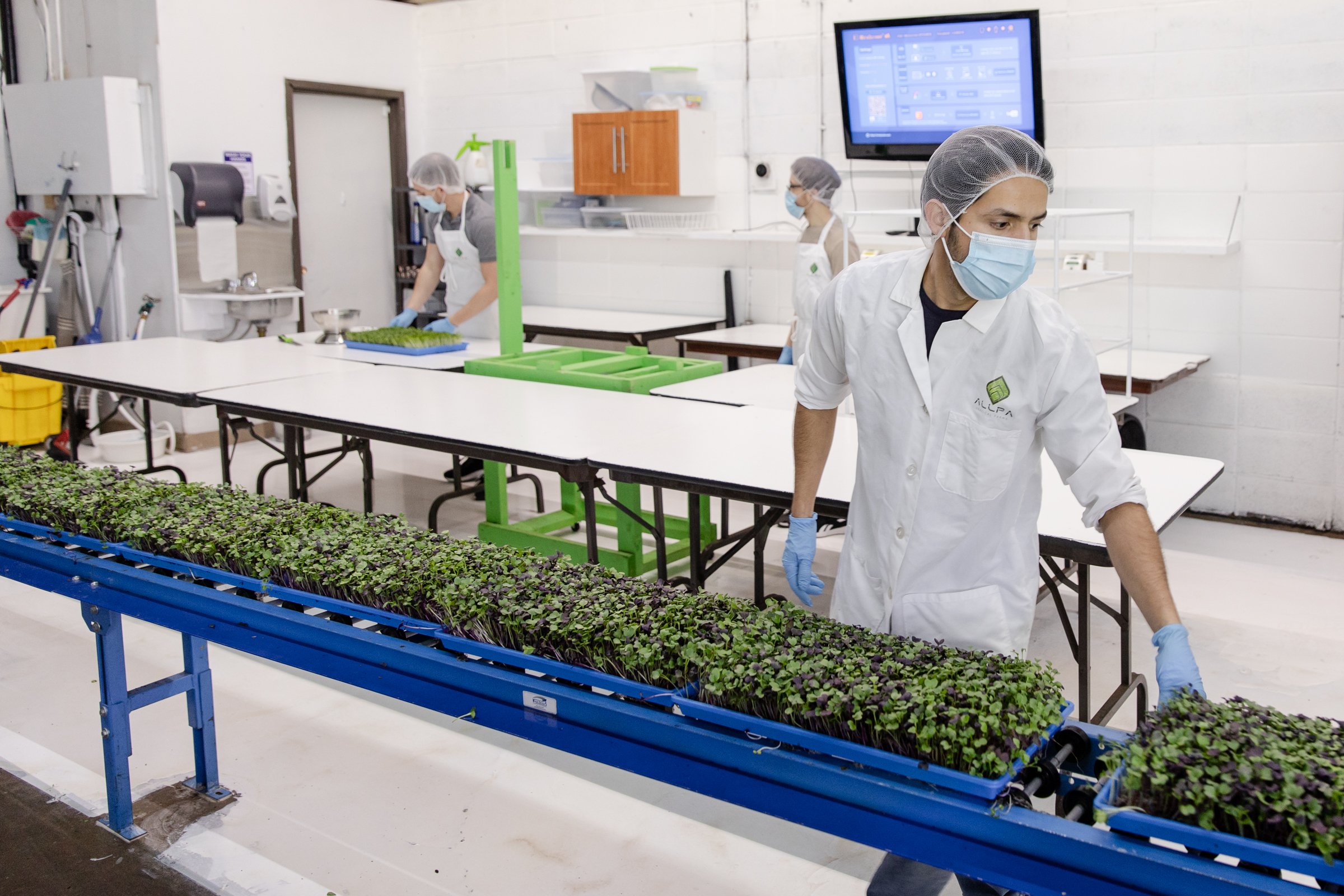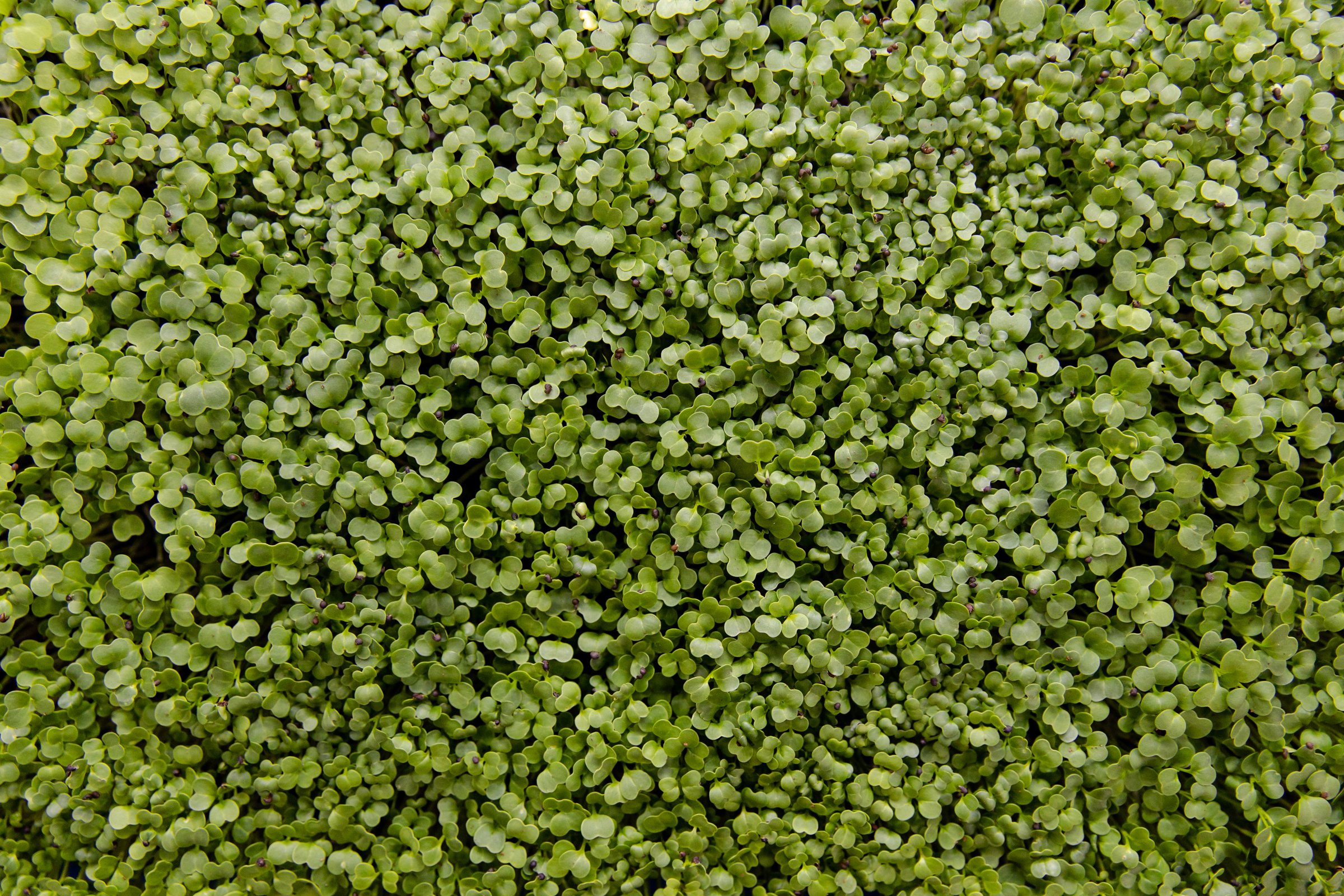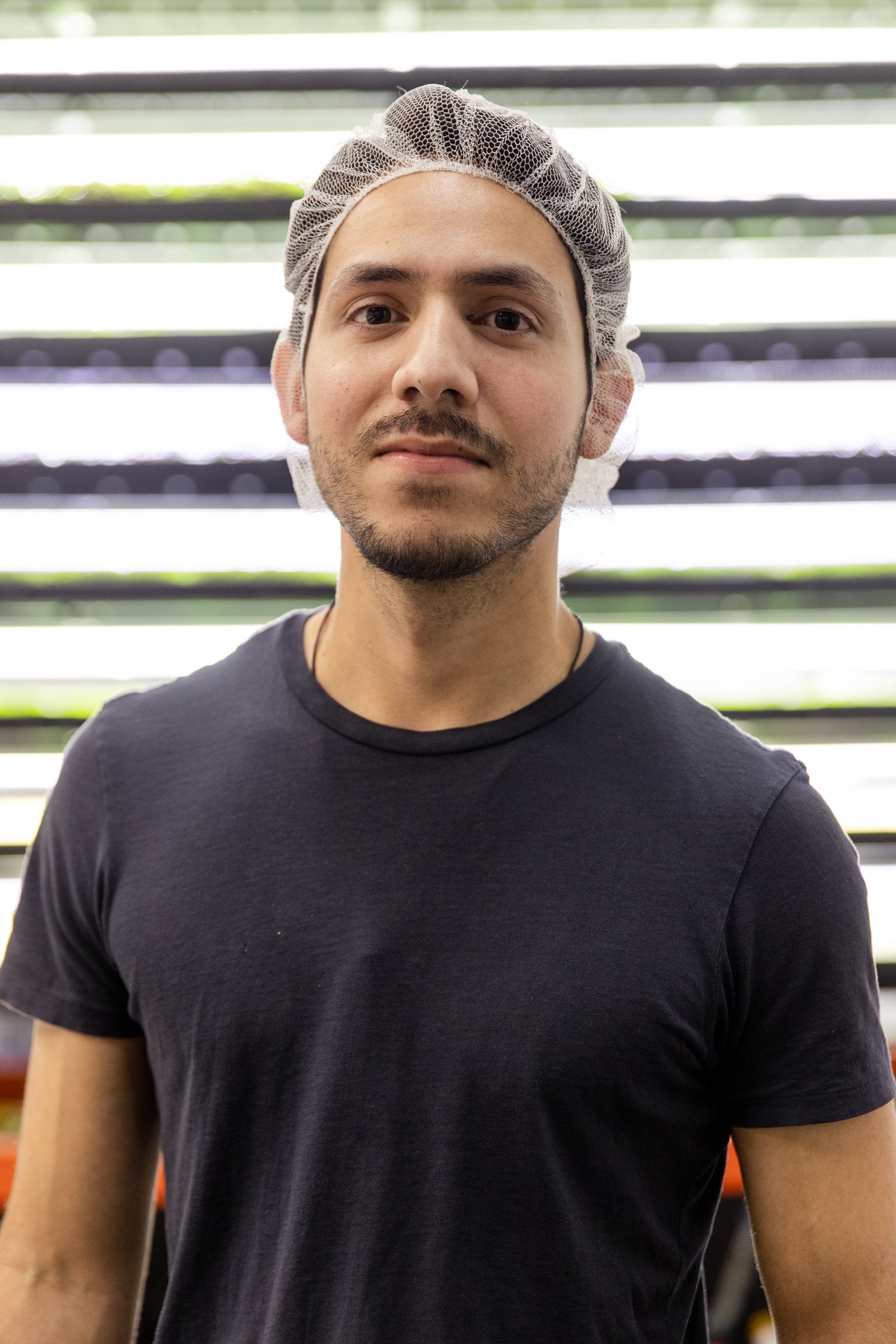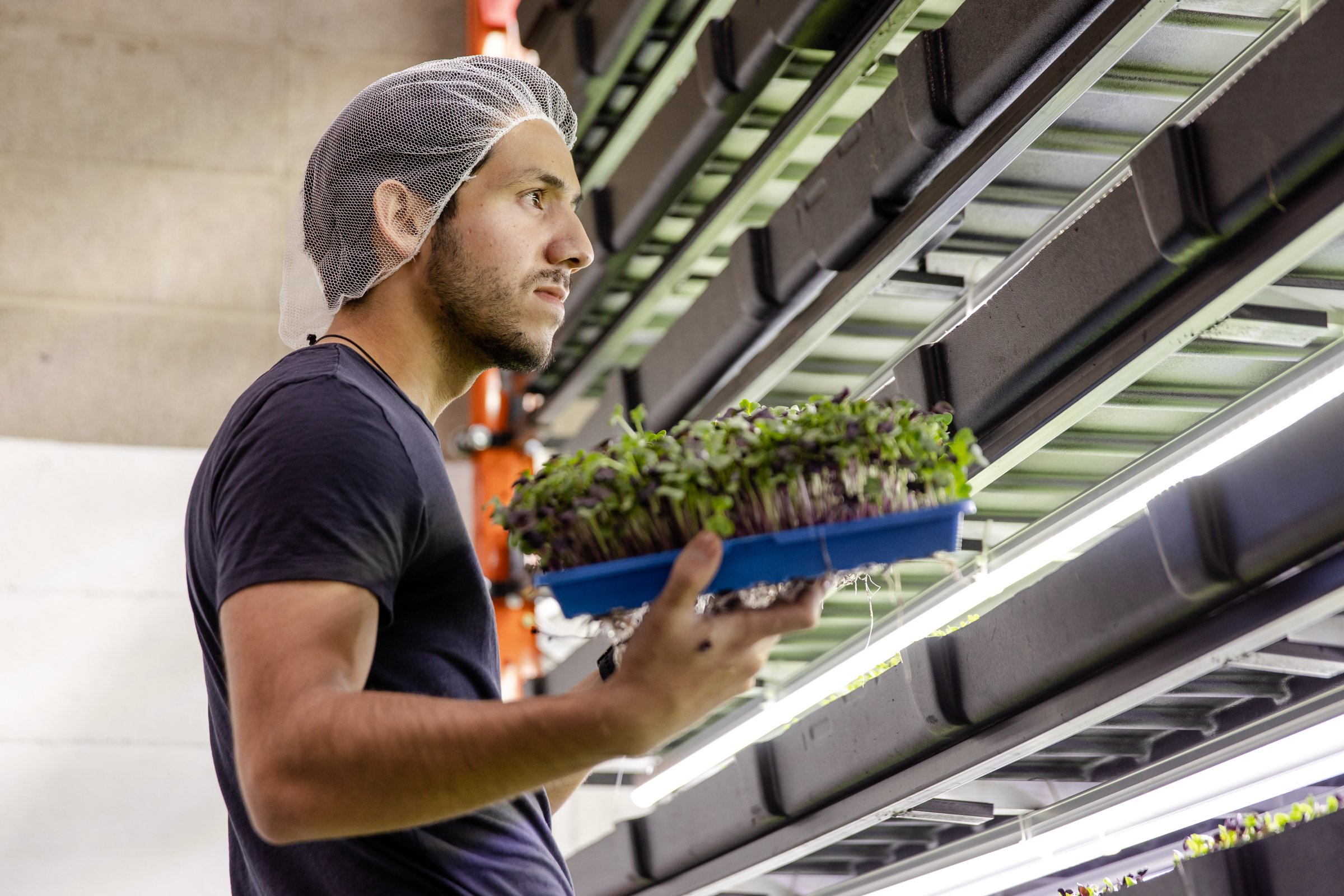Allpa Vertical Farms
Allpa Vertical Farms
WORDS BY CARLA BRAGAGNOLO
PROFILE
The technology and community that Allpa Vertical Farms is building is a refreshingly innovative take on farming - even more so considering the traditional Albertan backdrop where they are growing their company. What began as a pipe dream between three Lowes employees has burgeoned into a successful business with community, sustainability, and healthy eating at its core.
They’ve built their dream on the backs of microgreens: seedlings of larger vegetables that pack a unique flavour and an impressive dose of nutrients. Though quick to grow, microgreens can be resource-intensive and as a result, cost-worthy. It’s not uncommon to see a pack go for $25 - $30, compared to a $6 pack of spinach. Allpa Vertical farms intend to rebrand microgreens, taking them from 5-star restaurant garnish to a beloved and reliable vegetable variety accessible to millions.
Andrey, Guillermo and Zakk, the three founders behind Allpa, have varied cultural backgrounds that helped them identify gaps in the way the current farming industry is operating and shape what has become the foundation of their company. Andrey grew up in Columbia, Guillermo in Venezuela, and Zakk on a cattle farm near Edmonton. Their three unique perspectives gave them insight into what traditional farming lacked. They also learned from communities that needed to get inventive when it came to using the least amount of land and water to feed nutrient-rich foods to their people.
Andrey’s experiences in Columbia combined with his educational background in engineering shaped his approach to a more sustainable way to farm: an automated vertical farming prototype that has taken almost four years to perfect. There are clear benefits to the vertical farming method continually being perfected by Allpa over more traditional methods. One, it’s not reliant on access to huge amounts of land, or temperamental weather, because the growth happens in a controlled environment. That extremely controlled ecosystem has a second benefit: very little gets wasted, “We use 90% less water, less space, no pesticides, no herbicide and our product travels much less to get to the consumer.”
How does it work exactly? Andrey has built an industrial racking system that optimizes reaching the absolute yield per cubic feet and reduces the need for additional equipment to reach the higher racks. “We’ve engineered and built these machines ourselves and that has allowed us to iterate rather quickly, which has been essential to achieving higher yields with each new prototype.”
Andrey had been working on his prototype for years but wasn’t sure how to turn it into the business he knew it could be. He met Guillermo and Zakk while the three of them were working at Lowes and it was kismet. The team easily saw the roadmap from vision to value proposition with their idea to use vertical farming to produce microgreens. The hard part came with breaking into the market because of how many companies were already producing microgreens before they had even gotten started, “Our first large buyer was Sunterra and even they accepted because of our sheer persistence and…with the expectation that we would only sell 5-8 units per week at one of their stores. We are very proud to report that we now sell hundreds of units to Sunterras in Calgary, Red Deer and Edmonton.”
They are still working on educating the general public, “We still get asked what microgreens are. ‘Is that really broccoli?’ also comes up a lot. Selling a product that most buyers haven't heard of and many have never tried can be an uphill battle.”
Guillermo, the marketing brains behind growing the business, has focused his strategy on building a brand around a traditionally brandless commodity: vegetables. When was the last time you looked at the brand name of the carrots in your fridge? For Allpa Vertical Farms, ensuring their consumers know it’s their brand behind their favourite micro-green needs to be accomplished by tightly infusing their company values right into the product they are growing, “Our company has very clear values that permeate into the product itself. We have always been focused on three main aspects: the environment, giving back, and technology. So far, telling our story and getting people to listen to what makes us different from the competition and virtually every other produce supplier, has been really successful.”
Creating buy-in from their consumers and community is also why it’s important for the Allpa team to show the world how their farming techniques are replicable and scalable for communities, regardless of how much land or water the growers have access to. “One of the fundamental problems that we are trying to solve with these “towers” is to reduce the cost of setting up a vertical farm. We believe that every city should have one but unfortunately, they are notorious for being capital intensive. We hope to bring the cost down to a fraction of the current cost while simultaneously increasing yields per cubic foot.”
Andrey, Guillermo, and Zakk are confident they can democratize microgreens in Calgary, and the rest of Canada too, “We feel that microgreens aren't truly popular yet because they haven't gotten the exposure they deserve. Next, we are planning to expand beyond Calgary and continue our journey to decentralize farming and bring excellent, affordable food to as many Canadians as possible.”
The next time you pass a package of Allpa Vertical Farm’s microgreens at your grocery store, know that supporting their product means supporting a newer, more sustainable farming method with the potential to change the world.
For more on Allpa Vertical Farms visit their website at www.allpaverticalfarms.ca.















